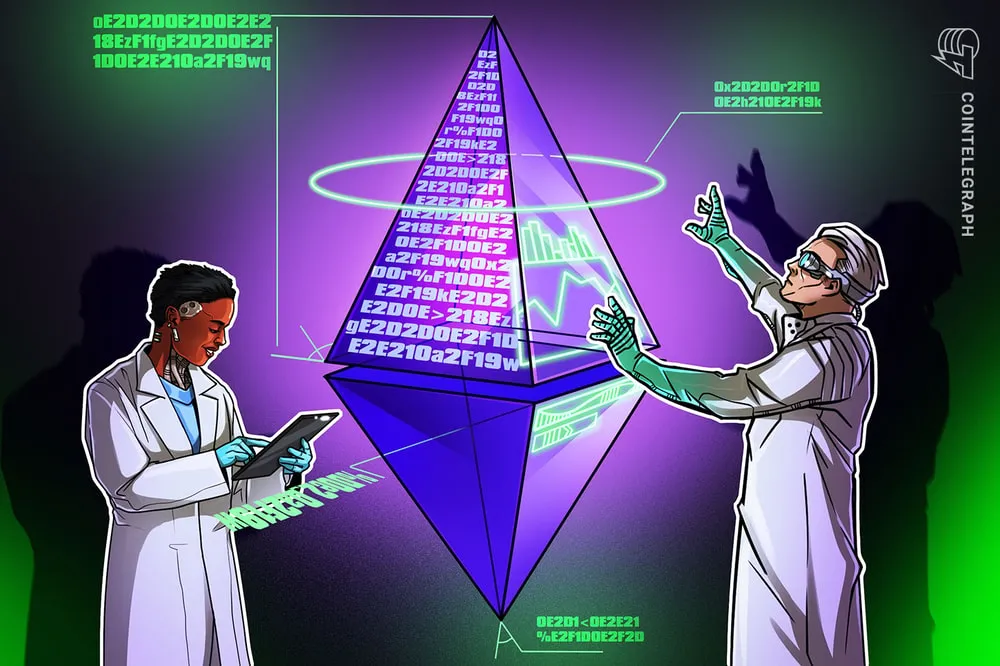This is a paraphrased version of what the official Solana X account posted with a meme-video attached.
The original post says:
When they say the future of markets runs at 22 TPS but NASDAQ handles 2k trades per second – Solana via X
I think that it is an apt observation yet also a misunderstanding of what is happening. It's comical because Ethereum is actually too slow (especially in comparison to what currently exists) to power global markets let alone finance, generally.
One could try to argue things like “oh, well it's borderless and cheap” but that would be a flawed judgement, passed as reason worth the praised migration of global finance to Ethereum.
This is simply because you cannot trade speed for a borderless design. What's the point of betting on serving a global market if you'd be limited to serving only 22 people (possibly less due to multiple accounts or txs by individuals) per second?
It's not a smart move. Also, throwing the card of being cheap would clearly come from a place of ignorance because if the network is already that limited, global finance atop would be quite expensive when that scale of usage actually comes.
So, knowing this reality, how then can Ethereum be the future of global finance? Also, considering that Solana is clearly suggesting that it's better positioned for this, would Solana end up being the chain this happens on?
A quote reply had this to say:
nasdaq handles 2m+ messages per 100ms with microsecond latency. solana isn't even close and never will be with the speed of light adding at least 100ms of latency from global consensus
most messages/trades occur in microsecond bursts and nasdaq is built to handle 51:1 capacity-to-peak ratio with microsecond latency. solana has a fixed compute capacity
quotes exceed trades (fills) by orders of magnitude. the reason market making on-chain is so expensive is market makers pay gas to revise/cancel quotes but only earn money from fills. and when solana is congested due to bursts of activity, market makers are subject to additional latency and gas costs at the same time volatility spikes
this means trades per second is an irrelevant metric but if we're being fair: NASDAQ trades per second does averages out to around 2k over a day – moon shiesty via X
Now, I'm in no place to comment on the validity of what's said above because I rarely look into traditional finance systems but I'd imagine that 2k TPS is rather too small and actual activities had to be much bigger, so the above reply could be a true assessment. That said, Anatoly Yakovenko responded to the above tweet with claims that Solana has had 1m+ txs proposed per second.
Whether or not that makes Solana capable of powering finance is not really important here today. What's important is to understand why institutions would be betting on Ethereum despite its limited TPS and associated high cost of transactions.
If you've been in crypto long enough and haven't already figured it out then I'd say that it is likely that you haven't been paying attention.
If we look at Bitcoin and Ethereum today, what do they have in common?
Both are slow and expensive. Bitcoin has a general max TPS of 7, while Ethereum has 30. But that's not all.
Both are also battle-tested in their own way. Bitcoin has stuck to its core security design and has grown regardless of embracing rigidity and Ethereum is popular for never having a downtime, being the first to migrate from proof of work (PoW) to proof of stake (PoS) without breaking, all while also being smart contracts compatible with the largest developer network.
These are the things institutions are looking at. There's a history of resilience there and out of the two, one leans more into programmability, meaning that it is only logical to bet on that one, being Ethereum, to have the most successes developing and deploying technologies that power the future of global finance.
It is already possible for institutions to run their own L2s to scale transaction speed and in the progress, completely take control of generated on-chain revenue, so why would they care that the mainnet and security layer is slow, when all that's critical for scaling can be abstracted away without compromising on security on the settlement layer?
This is why the bets are on Ethereum to power the future of global finance and that doesn't mean that alternative networks cannot rise to challenge the perceived future dominance.
